English / Language Arts
A balanced literacy instructional approach continues in Middle School at Trinity through reading and writing units of study. In English/Language Arts, students are intentionally taught to read, write, solve, and think in authentic genres for real purposes and audiences.
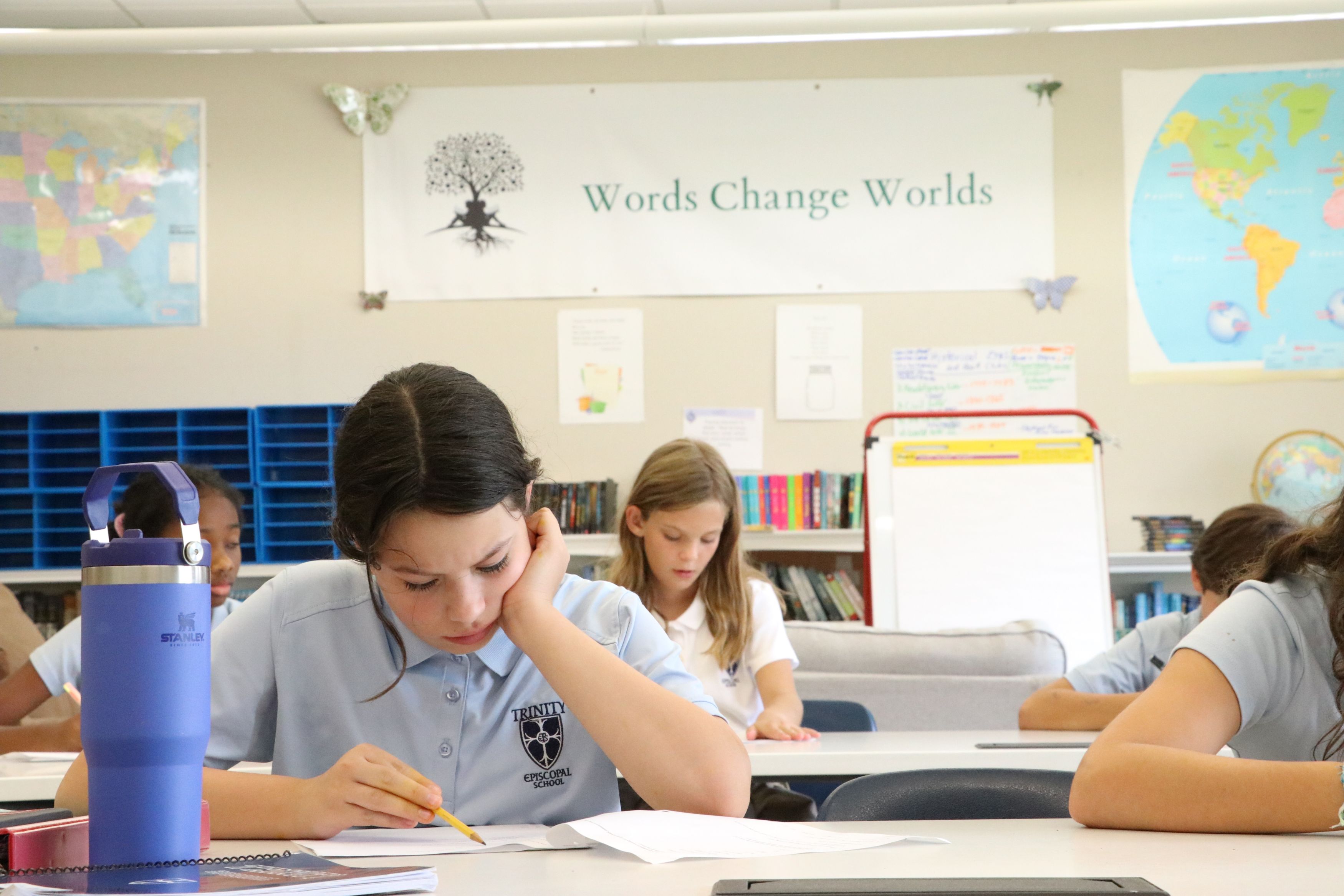
In reading, students self-select reading material and investigate reading skills and genre conventions through individual and shared reading. In writing, students focus on narrative, informational, and argumentative writing and investigate grammar and mechanics in the context of language in order to communicate effectively in the world.
Mathematics
Students are placed in grade-level and accelerated courses based on specific performance criteria. Instruction is grounded in a problem-based core curriculum rooted in content and practice standards to foster learning and achievement for all.
The following courses are offered:
6th Grade: Math 6
7th Grade: Pre-Algebra and Advanced Pre-Algebra
8th Grade: Foundations in Algebra, Math 1, Algebra 1, Math 2, Geometry
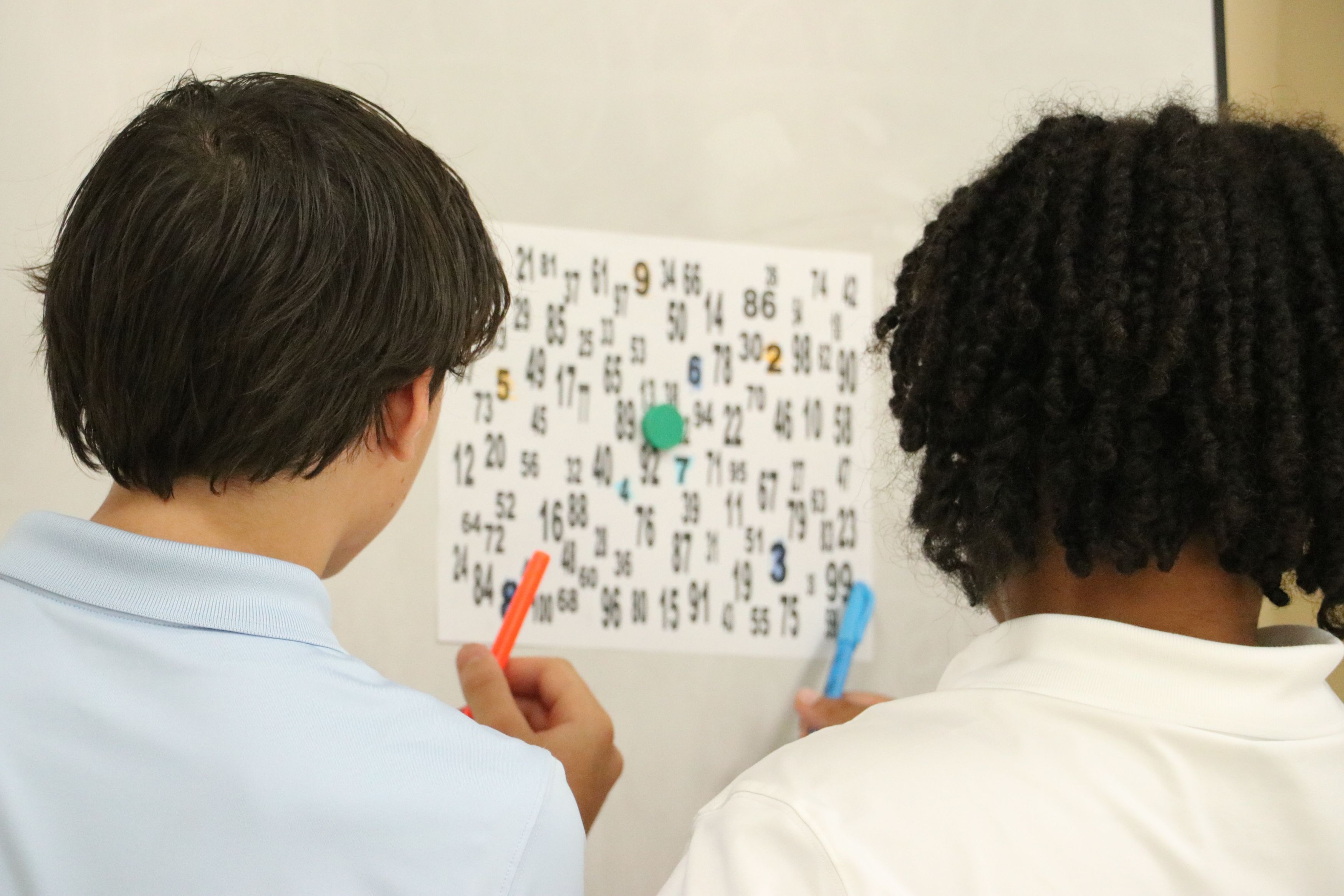
Social Studies
The Social Studies course of study is 6th Grade Geography, Civics, and Global Issues; 7th Grade Modern World History, and 8th Grade Modern United States History.
Sixth Graders study Geography, Civics, and Global Issues, in which students use geographic tools to understand the world and its complex systems. Through interdisciplinary study, students will gain a better understanding of the world, and a heightened curiosity about it.
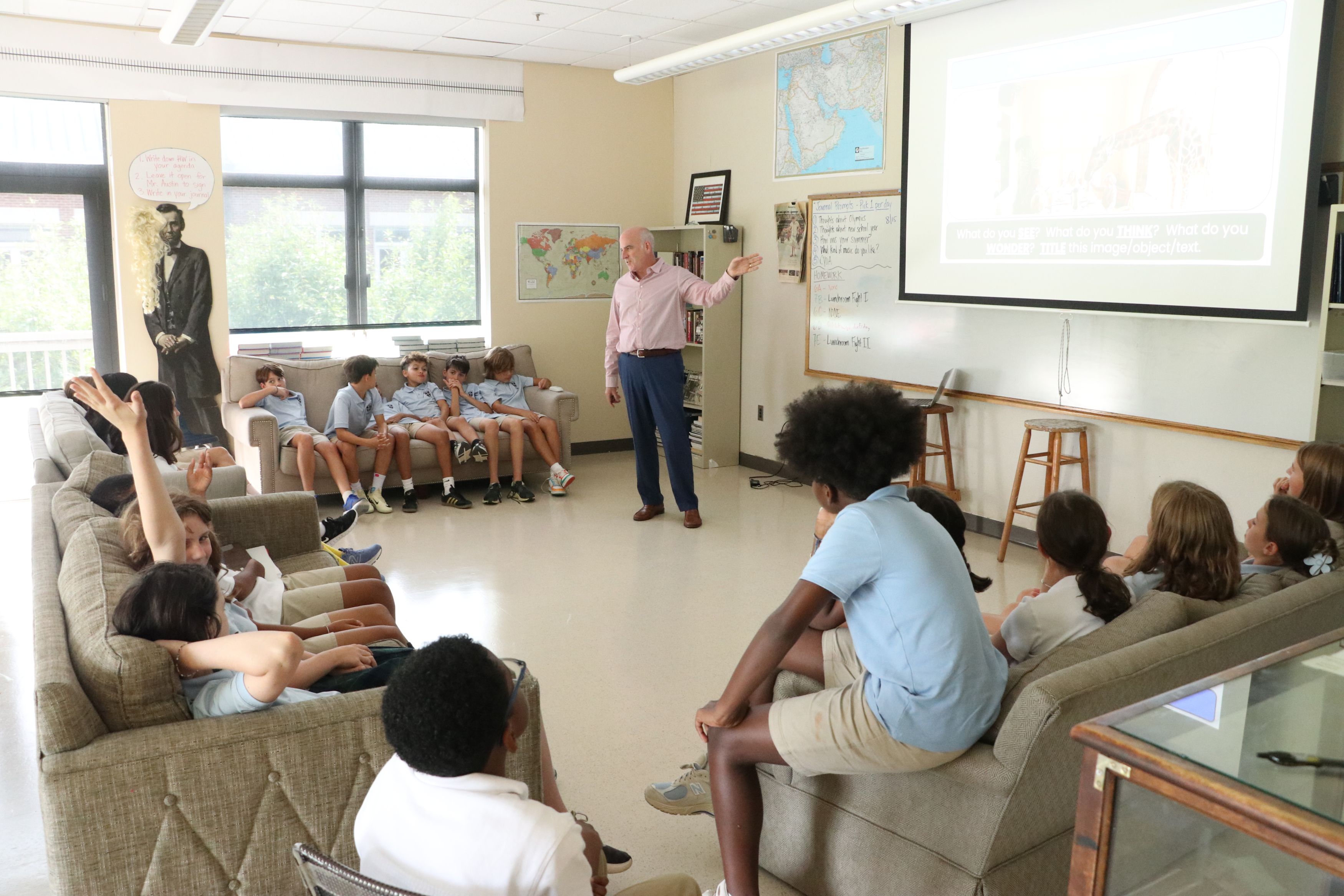
Seventh Graders study Modern World History, where the focus is on a thematic examination of 20th Century world events. The goal of this course is to widen students’ understanding of important world events through primary source and historical analysis, as well as the study of current events.
Eighth Graders study Modern United States History, where the focus is on a thematic examination of politically, socially, and culturally impactful American events in the 20th century. This course aims to develop an enthusiasm for analyzing the country's past and to cultivate in students' skills of critical thinking and analysis, helping them understand the impact of historical events on contemporary society. As in 7th Grade World History, students explore U.S. history via primary and secondary sources, as well as the study of current events.
Science
Trinity’s science program creates scientific thinkers who eagerly investigate, research, explore and record information about the world around them. Our hands-on, inquiry-based approach to learning weaves and spirals scientific content in various disciplines and grade levels allowing students to utilize the Scientific Method to experiment, construct, dissect, and create models to prove their hypotheses.
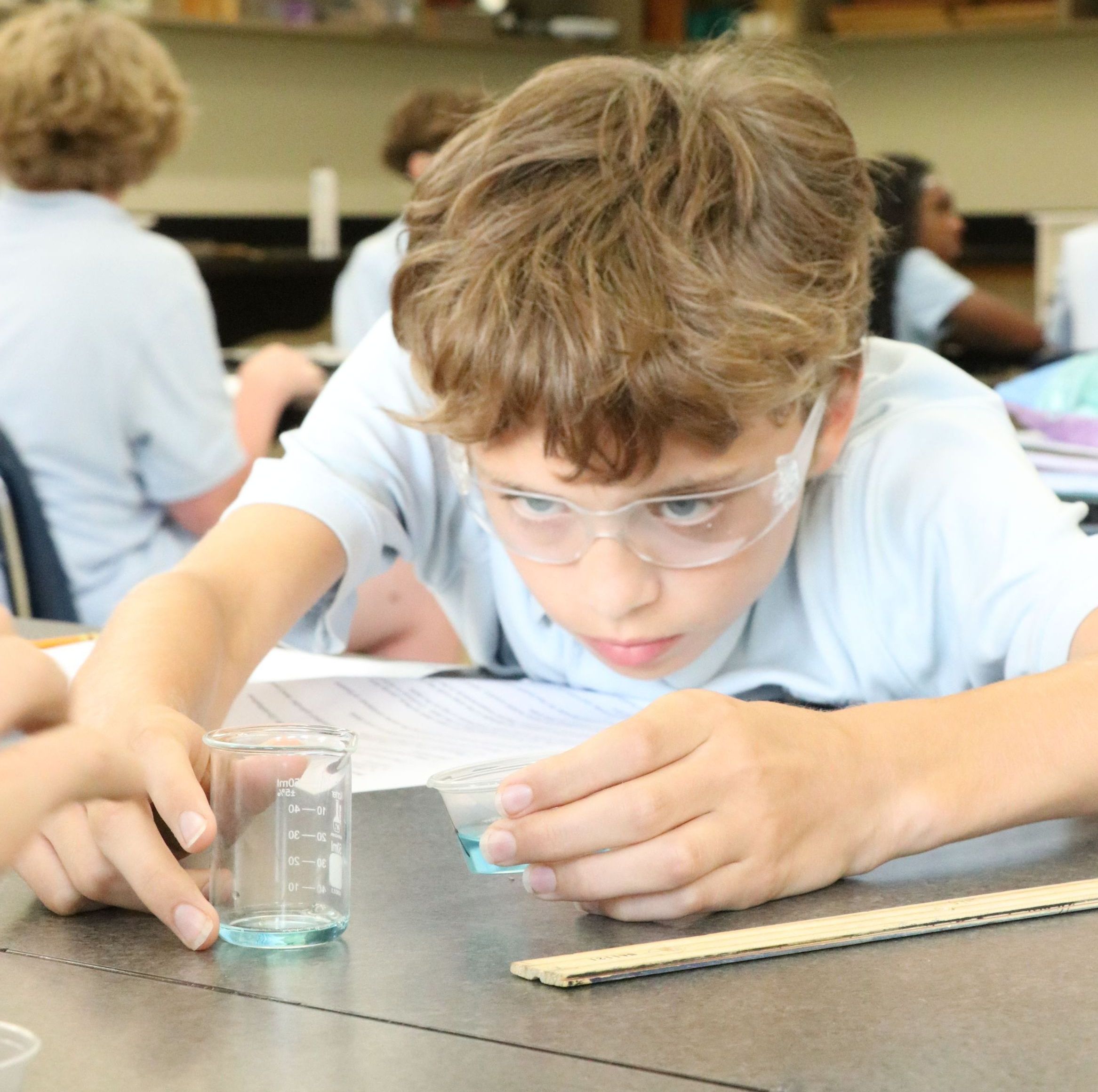
Throughout their nine years at Trinity Episcopal School, students are introduced to such sciences as earth science, physical science, life science, astronomy, physics, chemistry, microbiology, genetics, physiology and the study of our urban environment.
World Language
Middle School students choose between Latin and Spanish, completing Level 1, a high school course, by the end of their 8th Grade year.
Middle School Spanish
Spanish students develop reading, listening, writing and speaking skills through the study of grammar and vocabulary units built around themes. Spanish I students journey through the Spanish speaking world as they study different traditions, holidays and celebrations. As they build their vocabulary and grammar, students begin to converse and write in Spanish about a variety of themes such as family, school, sports, food, shopping, parties, household chores and daily routines through the creation of skits and digital presentations. Students will graduate from Trinity having completed Spanish I, a high school level course, and will be ready for Spanish II should they choose to continue studying the language.
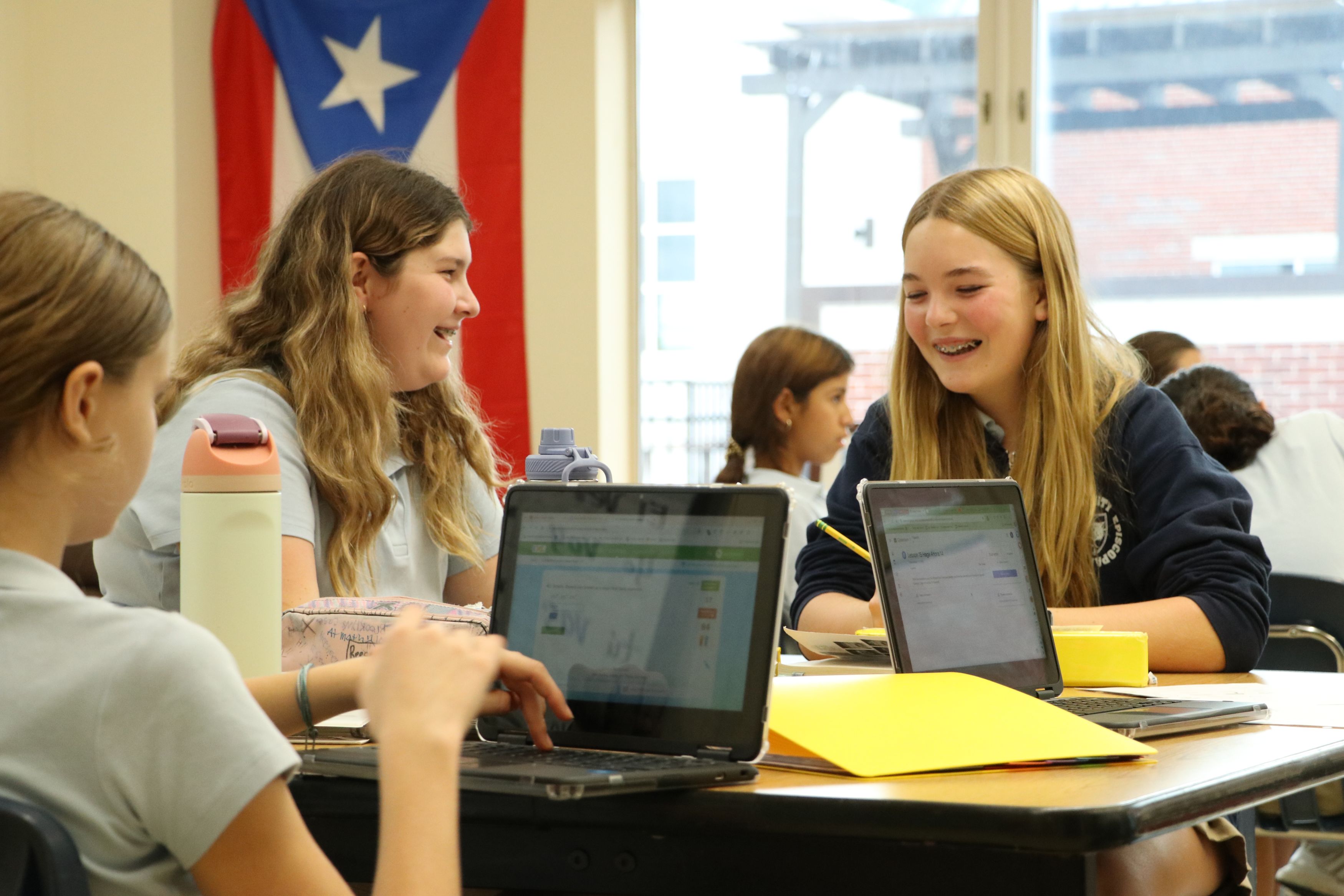
Middle School Latin
Latin students learn that this “dead” language is still very much alive in modern civilization. Students travel back in time to learn Latin in historical context and connect what they learn to their own language(s) and culture. Students explore the Roman world beyond the language, focusing on art, architecture, archaeology, mythology, government, food, engineering, etc. This is accomplished via project-based learning. Students explore modern allusions to the Classical world and identify areas in which modern cultures have been influenced. This program improves reading comprehension skills by teaching students to utilize prior knowledge, illustrations, and English connections to Latin vocabulary to aid them in understanding Latin passages. Students read Latin primary sources to hear from the Romans in their own voices. This course also includes spoken Latin to help students acquire and retain vocabulary and grammar. All Latin students build English vocabulary skills through word derivation activities.
